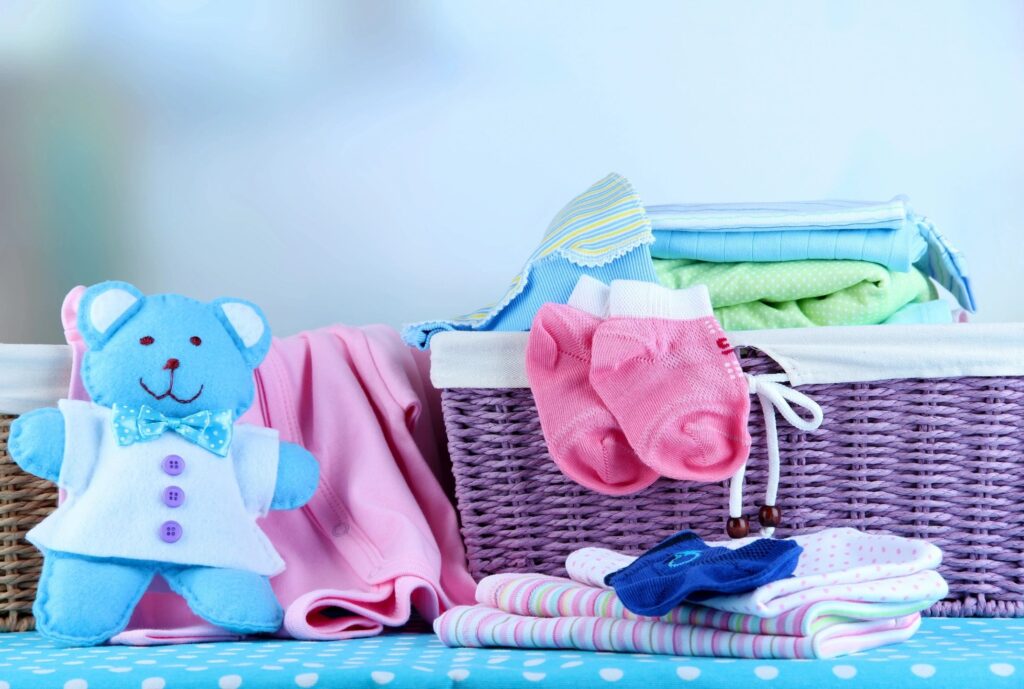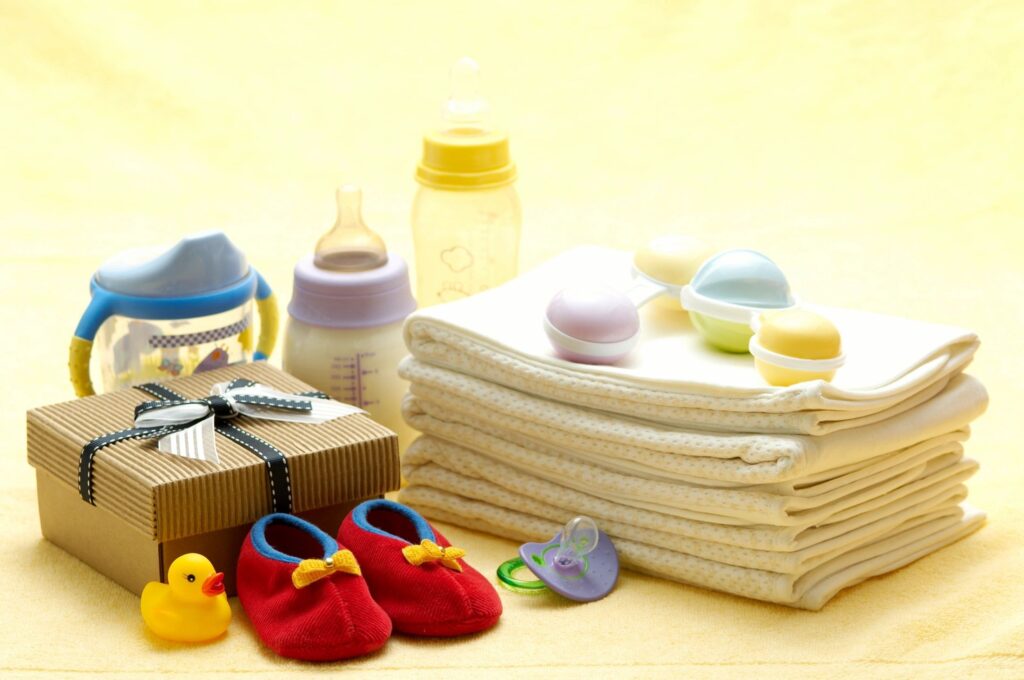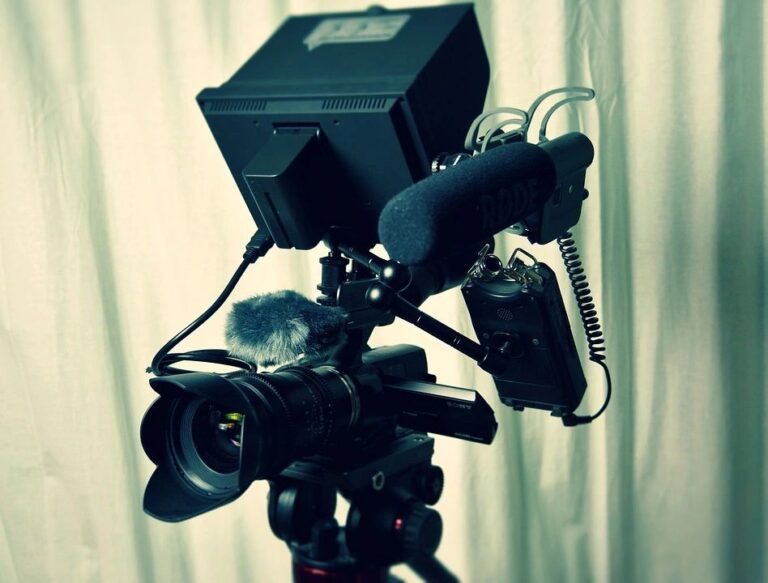How to Budget for A Newborn Baby?
DISCLOSURE: THIS POST MAY CONTAIN AFFILIATE LINKS, MEANING I GET A COMMISSION IF YOU DECIDE TO MAKE A PURCHASE THROUGH MY LINKS, AT NO COST TO YOU!
Congratulations on finding out you’re expecting if you’ve just found out. It is unquestionably an exciting time. You may, on the other hand, feel a little overwhelmed. Making a baby budget might assist to keep stress to a bare minimum during pregnancy and birth.
How to Plan a Budget for Your Child
Take A Good Look At Your Current Financial Situation
The first step in creating your baby budget is to conduct a thorough evaluation of your current financial situation. Make sure to account for both your and your partner’s income, as well as any contributions to 401K plans or other retirement accounts, your taxes, and any changes in income that will occur once your child is born.
Examine all of your expenses on a month-to-month basis after that. Your monthly expenses encompass everything from your rent or mortgage payment and utility bills to automobile and insurance premiums as well as spending money on meals and entertainment. Don’t forget about school loan payments, credit card payments, and any other bills that you have to pay back.
This procedure can be time-consuming, but it is really necessary! It will be tremendous assistance when putting together your baby budget.
Start Putting Money Aside Right Away
Following the development of a comprehensive image of your existing financial condition, it will be easier to identify areas where you can reduce your expenditures. This will assist you in being able to begin putting money down for your child as soon as possible.

Even if it’s only $50 or $100 a month, start putting money down now to help you prepare for your baby’s arrival. After all, having a child is not an inexpensive endeavor!
The United States Department of Agriculture published a report in January 2017 estimating the cost of raising a child from birth to the age of eighteen years to be $233,610. That’s more than $1,000 per month and more than $12,000 per year in additional income.
Make A Decision About What to Include in Your Baby Budget
The third step in the process of creating a baby budget is determining which products are absolutely necessary and which ones are not.
This is where the list of infant needs will come in handy if you have compiled a comprehensive list. It will assist you in determining which baby supplies are important for the care of your child and which ones can be omitted from your shopping list.
Create A Budget for Your Baby
The fourth and final phase is the actual creation of the budget itself. This can assist you in gaining a realistic understanding of how much money you and your partner will be spending in preparation for your child’s childbirth.
In addition, it will assist you in determining how much money you may expect to spend on a monthly basis once your child is born. Include all of your expenses, including food, clothing, diapers, formula, childcare, and any other expenses that come to mind.
X Ways to Save Money for Your Newborn Baby
If you’re looking for ways to save money on your baby’s expenses, you’ve come to the right place! Stick to these 12 simple suggestions to retain a little extra cash in your wallet.
Purchase Large Quantities of Items
Purchasing products in bulk can often result in a lower price per unit than purchasing individual items.
Consider the following example: a pack of 30 diapers may cost roughly $10, which means that each diaper costs 30 cents. A pack of 200 diapers, on the other hand, may cost roughly $40, implying that the diapers are only about 20 cents for each diaper. This represents a 33 percent savings!
Learn About Hand-me-downs

Hand-me-downs are an excellent strategy to stay within a limited budget while having a baby! The majority of the time, the products you receive will be in great condition. Inquire with any friends or family members who have already had children about whether they have any baby stuff to spare.
Yard Sales and Flea Markets Purchases
Shopping at yard sales, flea markets, and thrift stores are all fantastic places to get high-priced baby things at reasonable prices. It is quite OK to buy second-hand products for your baby’s crib, stroller, and changing table, among other things.
Shopping in this manner will save you a lot of money while also ensuring that you get the products you need in excellent condition. If you don’t have to, there’s no reason to buy anything fresh new.
Consider the Use of Cloth Diapers
Cloth diapers are reusable and, as a result, are an easy method to save money on your baby’s diapering expenses. Furthermore, cloth diapers are not only less expensive, but they are also better for the environment as well. Cloth diapers are also gentler on babies’ sensitive skin than disposable diapers, which is an added advantage.
While some parents prefer to launder their own cloth diapers, others choose to engage a service that will collect the dirty cloth diapers and return the clean ones a few days after they are collected. Although the former choice is obviously less expensive, the latter may be more enticing due to its greater convenience.
Take Into Consideration Breastfeeding
Not all women prefer (or are able to) breastfeed their children, and that is perfectly acceptable!
It’s important to remember, however, that some studies have indicated that breastfeeding offers a lot of health benefits, including supplying probiotic bacteria to your baby’s tummy and decreasing the risk of some illnesses. Furthermore, breastfeeding has been shown to lessen the risk of cancer in women who are pregnant.
In addition to all of this, nursing is completely free! It is recommended by the World Health Organization that you exclusively breastfeed your child until he or she is at least six months old. Just make sure you’re following these nursing guidelines and eating a nutritious breastfeeding diet.

In order to keep your baby’s budget under control, it would surely be advantageous to explore nursing if you are able to do so while also working full time. Those who are having difficulties breastfeeding should not be discouraged; there are plenty of other ways to save money.
Prepare Your Own Baby Food
Making your own baby food does not necessitate the expertise of a professional chef. In fact, at least in the first stages of introducing solid meals to your baby’s diet, their food will consist primarily of cooked and mashed vegetables or pureed fruits, with little or no flavoring added.
Making your own baby food is less difficult than you would expect, and it will help you remain on track with your baby budget.
Take Advantage of Tax Savings Opportunities
Being a parent may result in significant tax savings depending on where you live. These benefits could include tax discounts on hospital bills, insurance co-pays, daycare fees, and even the simple fact that you’ve decided to bring a child into the world.
You should spend some time researching whatever tax breaks you and your partner might be entitled to.
Examine Your Health-care Insurance Policy
While you’re looking at tax savings, don’t forget to look into your health insurance options as well. Fortunately, most health insurance policies are quite generous when it comes to childbirth, so do your homework to see if your plan covers any additional services, such as Lamaze or special pregnancy fitness courses.
Make Arrangements for Childcare in Advance
The cost of childcare is one of the most significant expenses associated with raising a child. Every couple’s situation is unique, but if you and your spouse will both be working full-time a few months after your kid is born, it’s a good idea to start planning for childcare as soon as possible.
Occasionally, family members may be able to assist with childcare responsibilities. If not, you can begin looking for economical childcare providers that will provide your infant with extra special attention by conducting some preliminary research.

Preparing for the arrival of your tiny bundle of joy may be a time-consuming and stressful endeavor. A baby budget will assist you in feeling more prepared and confident during your pregnancy.
Request for Coupons and Free Samples
Manufacturers frequently shower maternity wards with gifts, but the medical personnel is frequently too busy to remember to distribute them.
I was given tubes of moisturizer and diaper ointment, as well as coupons for things like baby wash and baby photos, and a really stylish black diaper bag to carry everything in—but only after I inquired of a nurse about if there were any samples available.
Conclusion
Before you even deliver your kid, there are expenses to consider, such as the purchase of maternity apparel and bras, as well as any out-of-pocket healthcare expenses you may incur throughout your pregnancy.
When you’re expecting a child, the idea of sleepless nights, nappy changes, and teething can be a frightening notion. So having to worry about your finances on top of everything else is a drag.
Because of the ever-increasing number of ‘essential’ baby things on the market, the price of these items can seem exorbitant – and the likelihood is that your income will be reduced, at least temporarily. However, with careful planning, you can keep your spending under control.
Thanks for reading this article and if you like this kind of content don’t forget to sign up for our weekly posts. You are sure to get some value!
Digee Dads
![]()







